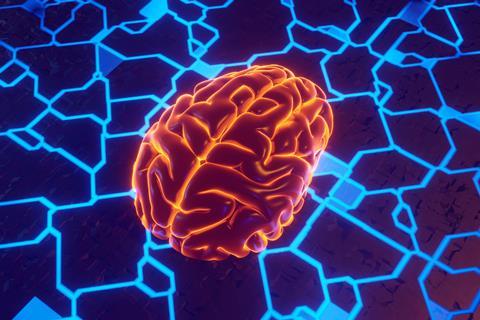‘If it wasn’t for online friends sharing the Gospel, I don’t think I’d be a Christian. However, the negative side is that algorithms are designed to keep us online, so that our data can be harvested and sold to companies so they can market products to us,’ says Kate Orson.

I recently watched the Netflix documentary The Social Documentary and a quote from one of the interviewees; writer and computer scientist John Lanier really stuck with me. He was talking about how if something online is given for free, such as Facebook, then we humans are actually the product, or to put it more accurately. “It’s the gradual, slight, imperceptible change in your own behaviour and perception that is the product.”
I was reminded of this quote when I noticed an online Christian friend posting about how anyone who puts up a Christmas tree is going to hell, and that it’s a sin to wear make-up. I’d never met her in person, but through comments and messages she’d always struck me as a kind person, filled with grace.
Now she was sharing things like a TikTok video of an angry woman swearing at her husband while dragging a Christmas tree out of the house. Was it the algorithm that had got her?
Now she was sharing things like a TikTok video of an angry woman swearing at her husband while dragging a Christmas tree out of the house. Was it the algorithm that had got her? Judging from the amount of TikTok videos she was sharing, it seemed like that this new theology had come from the online world.
I quit social media when the Holy Spirit revealed the damaging way I interacted with it
I like to think I’m not being deceived, but could algorithms be subtly changing my thinking? Recently while on a Facebook fast I substituted my ‘fix’ by scrolling through YouTube. I noticed that all the videos that popped up tended to be focused on nationalism; content about free speech, taking back our country and the influx of Muslim immigrants. While free speech is an important issue I felt like the content was trying to draw me into a ‘flesh and blood’ war, to influence me into forgetting that what we are dealing with is not physical but spiritual. As Ephesians 6:12 says, ‘For we do not wrestle against flesh and blood, but against the rulers, against the authorities, against the cosmic powers over this present darkness, against the spiritual forces of evil in the heavenly places.’
I like to think I’m not being deceived, but could algorithms be subtly changing my thinking?
On another occasion, an academic presentation on the early church popped up on my suggested videos. It was really interesting to hear about how the first church gatherings didn’t have sermons or even sing worship. It validated my thoughts about how things could be different. However, there was a more negative side to watching it, and the way the algorithm drew me towards consuming more, similar content. I hadn’t been to church for the last week and felt a little disconnected from my brothers and sisters. The presentation got me craving something more organic and for a while I started thinking negatively about conventional churches. I could also sense the temptation to not go to church because they weren’t doing things ‘correctly.’ Later I noticed the pride that came from discovering this ‘special’ knowledge.
Social media could make you miserable and come between you and God, I made one simple change to help my mental and spiritual health
Isaiah 53:6 tells us that ‘all we like sheep who have gone astray, we have turned everyone to his own way.’ I think as Christians we need to be algorithm aware, and use social media extremely carefully.
Sometimes social media can feed the soul. In my case it brought me to faith. If it wasn’t for online friends sharing the Gospel, I don’t think I’d be a Christian. However, the negative side is that algorithms are designed to keep us online, so that our data can be harvested and sold to companies so they can market products to us.
It’s not just the time used up and the addictive dopamine releasing ‘likes’ that are problematic, but the way our thinking might change if we spend too much time in the thrall of the algorithm.
Christians shouldn’t be afraid of Instagram and TikTok
I’ve seen Christians take extreme, legalistic views of the anti-Christmas tree kind. I’ve seen angry debates on minor issues. Sometimes, if I’ve read too many posts that are critical of other Christians or the church, I find myself feeling like I’m being judged. None of this is good for our mental health, or our relationship with God.
Yet, I do also love the connections made, and the many positive interactions. So what to do?
Some ways I’ve developed in my own life are taking regular social media fasts. I also try to avoid discussions that evoke strong, divisive opinions, though sometimes I do think it’s important to speak up.
I’m grateful for January for the new starts, and for my church for shepherding me well by suggesting the idea of a social media fast. We can’t beat the algorithm alone; an encouraging community of believers is the vital ingredient to put our phones down and escape into the real world.



































No comments yet